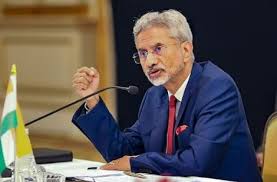Privatization, the transfer of state-owned enterprises (SOEs) to private ownership and management, is seen as a robust strategy to address fiscal deficits. By reducing government expenditure, enhancing efficiency, and stimulating economic growth, privatization can help Pakistan tackle its fiscal challenges. This article examines the potential benefits of privatization, using recent data and examples from Khyber Pakhtunkhwa (KP) and other regions in Pakistan.
The Fiscal Deficit Challenge in Pakistan
Pakistan has long struggled with fiscal deficits, where government spending exceeds revenue. This deficit, often financed by borrowing, leads to increased national debt. According to report, the fiscal deficit reaching over 2.3% of GDP in the first half of the fiscal year, primarily due to a 64% rise in markup payments. Despite this, the primary balance improved to 1.7% of GDP from 1.1% the previous year. Revenue collection also rose, with significant increases in tax revenue (30%) and non-tax revenue (109%), including a 596% surge in petroleum levy collections and a 162% rise in State Bank of Pakistan profits.
Privatization: A Strategic Solution
Privatization can bring several benefits:
1. Revenue Generation: Selling SOEs provides immediate funds to bridge fiscal gaps.
2. Efficiency Gains: Private entities typically operate more efficiently than government-run organizations, reducing costs and improving service delivery.
3. Debt Reduction: Privatization proceeds can be used to reduce debt, lowering interest payments and freeing up resources.
4. Economic Growth: Increased private investment and improved efficiency can drive economic growth, creating jobs and boosting incomes.
KP’s Privatization Endeavors
KP, like other provinces, faces fiscal challenges with strained budgets due to rising expenditures and insufficient revenues. KP has launched several privatization initiatives to address these issues. Some success stories from KP include:
1. Bank of Khyber (BoK): Partial privatization improved performance through better governance and management after selling shares to private investors.
2. Khyber Pakhtunkhwa Economic Zones Development and Management Company (KPEZDMC): Private partnerships in managing economic zones led to more efficient operations and increased industrial activity.
Lessons from the Rest of Pakistan
Nationally, Pakistan has seen mixed results from privatization. Notable successes include:
1. Telecom Sector: Privatization of Pakistan Telecommunication Company Limited (PTCL) in 2006 brought substantial revenue and service improvements.
2. Energy Sector: Privatization of Karachi Electric Supply Company (now K-Electric) led to better service delivery and infrastructure development.
However, less successful attempts, such as with Pakistan Steel Mills and Pakistan International Airlines (PIA), highlight the need for careful planning.
Challenges and Considerations
Privatization faces several challenges, including resistance from labor unions, political opposition, and concerns over job losses and price increases. Addressing these challenges requires:
1. Stakeholder Engagement: Involving employees and consumers to reduce resistance and ensure smooth transitions.
2. Regulatory Framework: Establishing a robust framework to prevent monopolies and protect consumer interests.
3. Social Safety Nets: Implementing measures to support workers displaced by privatization.
Conclusion
Privatization presents a viable strategy for KP and Pakistan to control fiscal deficits and stimulate economic growth. Learning from past experiences and adopting best practices can help maximize benefits while mitigating challenges. As Pakistan continues its economic reforms, privatization will play a crucial role in achieving fiscal stability and prosperity.
References
1. Pakistan Economic Survey 2022-23.
2. State Bank of Pakistan Annual Report 2022.
3. Khyber Pakhtunkhwa Government Budget Documents.
4. World Bank Reports on Privatization and Economic Reforms.
5. Case Studies on Privatization: PTCL, K-Electric, and Bank of Khyber.
6. Dawn, January 30th, 2024.



